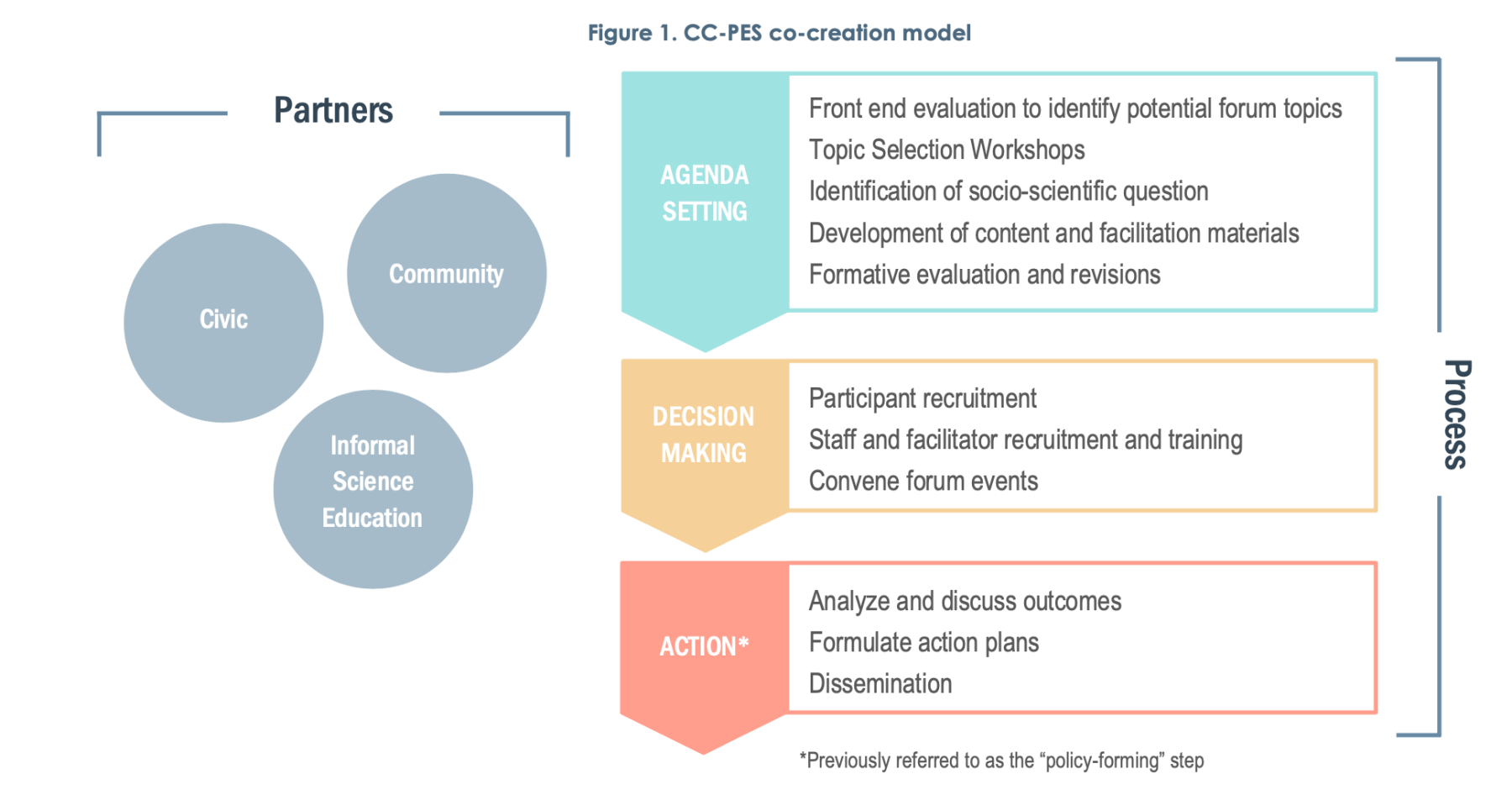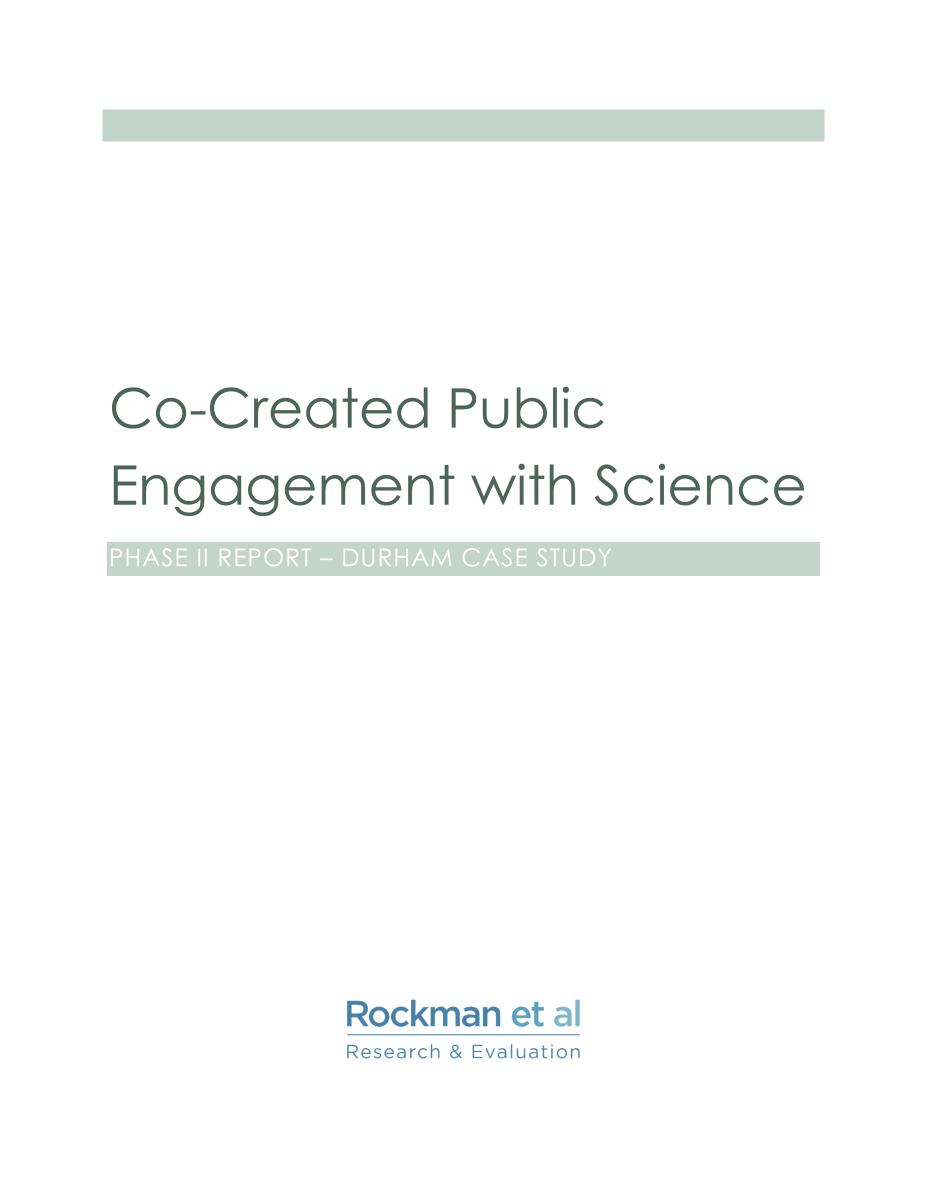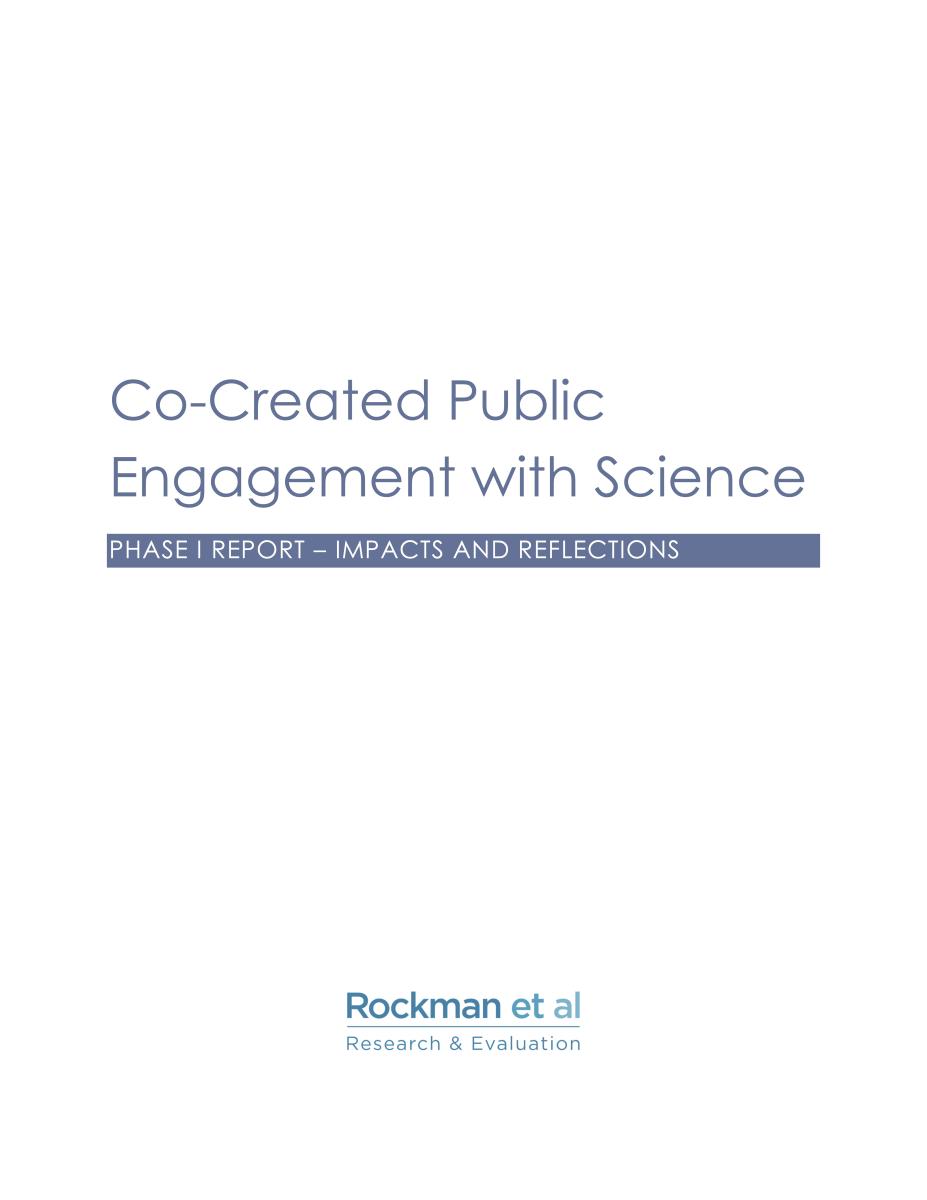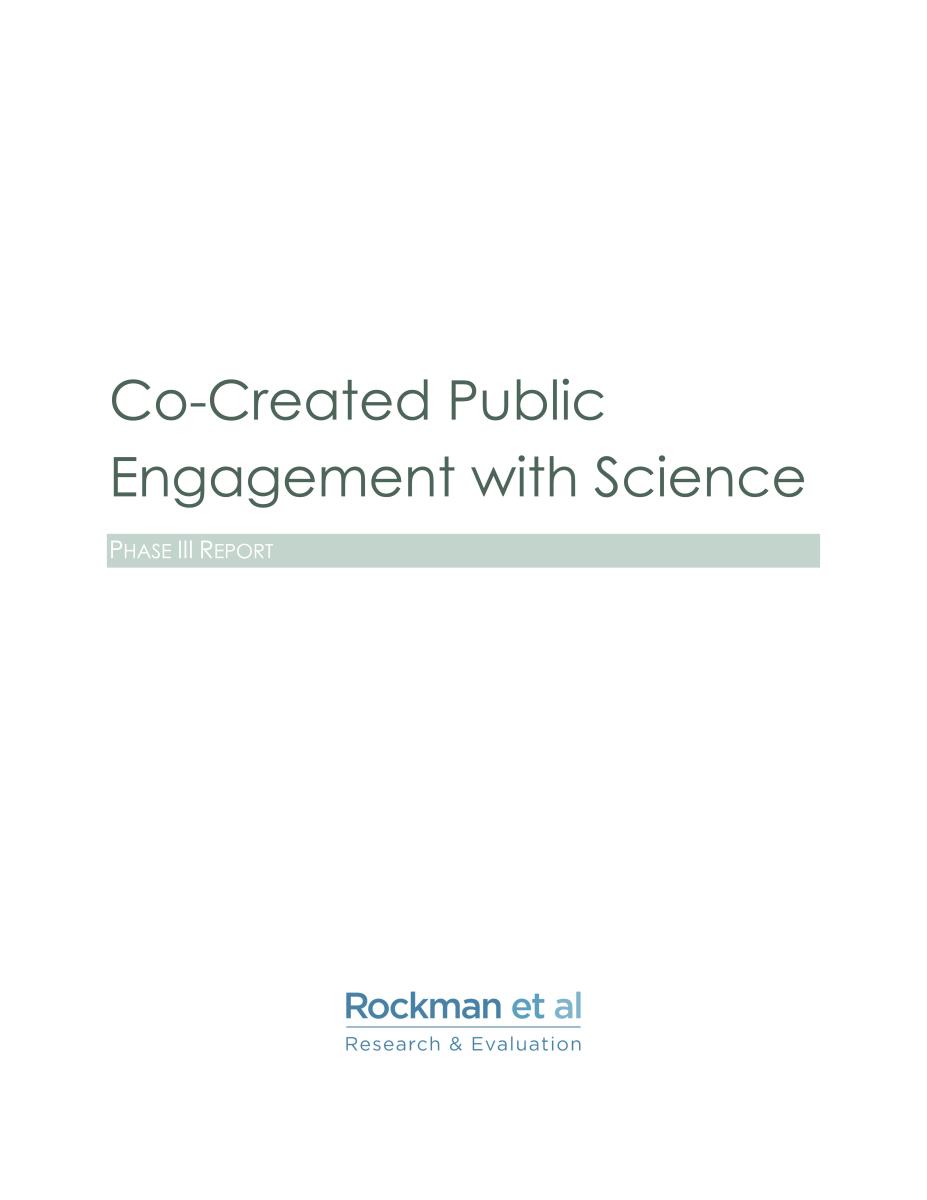DESCRIPTION
The Co-Created Public Engagement with Science Project (CC-PES) led by the Museum of Science seeks to build capacity among museums and other informal science education (ISE) institutions to develop and implement co-created public engagement with science activities. The heart of the CC-PES model is involving community and civic representatives as co-creators of dialog programs that address important socio-scientific questions, and then finding a way to turn community input into action.
- Public Engagement with Science - public forum programs that include dialogue and deliberation in partnership with local community, civic, and scientist partners.
- Co-Created – participation of public and civic participants along with scientists and informal educators in all stages of the CC-PES process, including topic selection, decision-making, and policy formation.
Reports:
- Phase 1
Authors: Claire Quimby, Lead Researcher, Camellia Sanford-Dolly Data Collection, Analysis, and Reporting - Phase 2 (Durham Case Study)
Author: Claire Quimby, external research partner, report author Rockman et al - Phase 3
Authors: Claire Quimby, Lead Researcher Kara Fedje, Associate Researcher, Rockman et al
DESCRIPTION
The Co-Created Public Engagement with Science Project (CC-PES) led by the Museum of Science seeks to build capacity among museums and other informal science education (ISE) institutions to develop and implement co-created public engagement with science activities. The heart of the CC-PES model is involving community and civic representatives as co-creators of dialog programs that address important socio-scientific questions, and then finding a way to turn community input into action.
- Public Engagement with Science - public forum programs that include dialogue and deliberation in partnership with local community, civic, and scientist partners.
- Co-Created – participation of public and civic participants along with scientists and informal educators in all stages of the CC-PES process, including topic selection, decision-making, and policy formation.
Reports:
- Phase 1
Authors: Claire Quimby, Lead Researcher, Camellia Sanford-Dolly Data Collection, Analysis, and Reporting - Phase 2 (Durham Case Study)
Author: Claire Quimby, external research partner, report author Rockman et al - Phase 3
Authors: Claire Quimby, Lead Researcher Kara Fedje, Associate Researcher, Rockman et al
Credits
Project Lead: Museum of Science Boston
Reports: Rockman et al
This study is supported by the National Science Foundation (Award No. 1811118). Any opinions, findings, conclusions, or recommendations expressed in this report are those of the evaluation team and do not necessarily reflect the views of the National Science Foundation.
Creative Commons Attribution Non-Commercial Share Alike 3.0 United States (CC BY-NC-SA 3.0 US).
View more details

NISE Network products are developed through an iterative collaborative process that includes scientific review, peer review, and visitor evaluation in accordance with an inclusive audiences approach. Products are designed to be easily edited and adapted for different audiences under a Creative Commons Attribution Non-Commercial Share Alike license. To learn more, visit our Development Process page.




